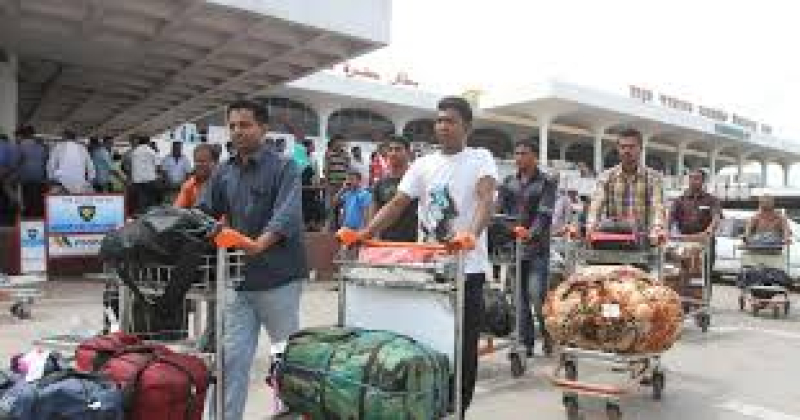- UNRWA Situation Report on Crisis in Gaza & Occupied West Bank |
- Intimidation or bloodshed cannot halt Bangladesh’s march to democracy |
- Khaleda Zia integral to an important chapter in BD history: Yunus |
- Enthusiasm marks Victory Day celebrations across Bangladesh |
- Dhaka-Delhi ties deep; to be shaped by trust, dignity, mutual respect |
Our migrant workers deserve better
Bangladesh needs to do much better by its overseas workers

As an economy, Bangladesh -- as it stands today -- could never have been possible without the tireless efforts of the millions of expatriate workers sending in precious remittance back to their homeland. To say that our migrant workers are an irrefutably important pillar of our nation’s continued economic progress would be an understatement.
What would also be an understatement is to say that Bangladesh has historically failed to not only support its migrant workers but has also miserably failed to protect them from the host of hazards which make their lives that much tougher.
A recent Dhaka Tribune series shines a light on the plight of our migrant workers by looking at individual stories and the problems they face. The story of Soheli Khatun -- a mother of two from Lalmonirhat -- who ventured abroad as a domestic help in Saudi Arabia and tragically succumbed to illness within four months is one of many expatriate workers who have perished while away from Bangladesh.
Soheli’s story highlights just how opaque the government’s insurance schemes are for overseas workers. After being returned to Bangladesh, Sohel’s father sought the promised insurance sum of Tk3 lakh only to be turned away by officials because her death certificate had shown HIV positivity.
Insurance benefits are completely null and void if the death certificate of a migrant worker, provided by the host country, shows HIV positive status, death by suicide, or death in conflict. There is virtually no recourse left for the families to do anything at that point.
Soheli’s story is but one out of many in which Bangladeshi migrant workers, and their families, are treated incredibly unfairly even in the face of death. To say nothing of the thousands of overseas workers who are subjected to terrible working conditions and unsafe environments, often leading to permanent injuries that they are rarely compensated for.
Bangladesh needs to do much better by its overseas workers, as it is on their backs that the nation they have left behind continues to be built.

